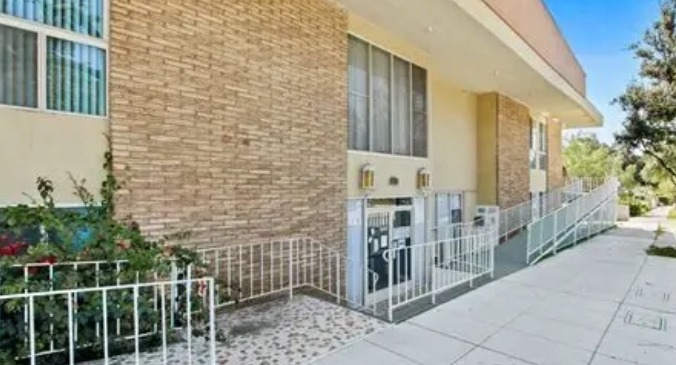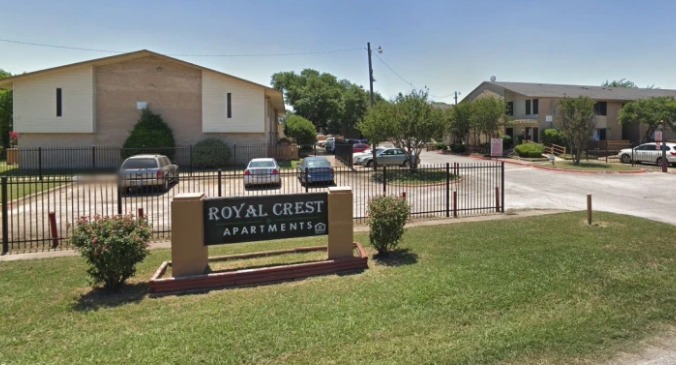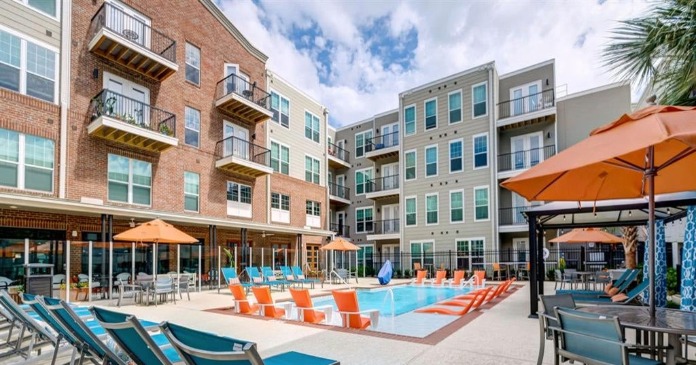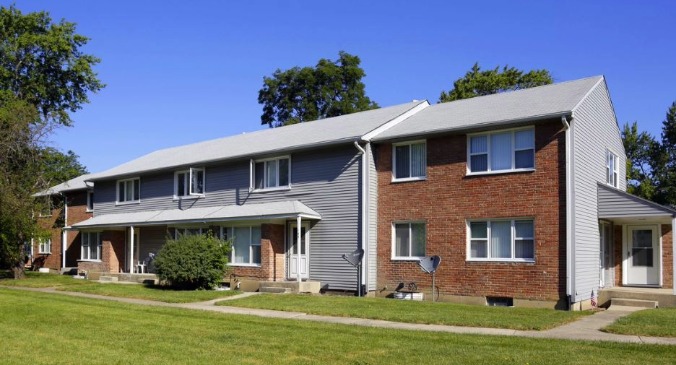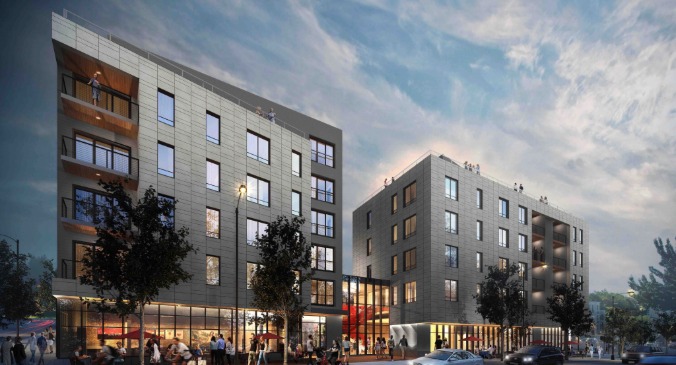He is confident that the 72-unit DeKalb Apartments his firm delivered in Philadelphia’s northwest suburbs in November is small enough to be stabilized or fully occupied by the end of the historically busy summer leasing season in 2010. The community that consists of one- two- and three-bedroom units in two four-story elevator buildings, located within a ten-minute drive of three other company-owned apartment assets, is the final phase of an existing 417-unit community that Scully has owned for 15 years.
With auto industry job cuts and staff reductions in the professional and business services sectors accounting for 40 percent of Philadelphia’s 8.9 percent jobless rate as of October, the City of Brotherly Love still beat out the national unemployment rate of 10.4 percent. The region’s manufacturing sector actually is picking up, according to firms polled for the November issue of Business Outlook Survey, a newsletter published by the Federal Reserve Bank of Philadelphia. A strong higher-education presence within the metro also continues to drive job growth in the education and health services sectors.
More positive news: The Philadelphia market is not considered overbuilt, “particularly when you look at the Phoenixes, the Vegas’ and the Atlantas,” said Scully.
This year, in response to declining renter demand in metro Philadelphia, developers cut back deliveries of apartment units by 55 percent to 600 units. Another 3,000 rental units are in the planning phase, with no set start date. But some of the 1,400 condos that came online in the city over the past year and the 1,600 more that will be completed by the end of the year will enter the shadow rental supply because of weak sales conditions, Marcus & Millichap’s Q3 2009 market report predicts. Analysts expect average apartment vacancies in the metro to close out the year at 6.8 percent, an increase of 110 basis points, with sub-markets closest to the downtown area, known as Center City, expected to outperform the rest of the Philadelphia MSA.
Scully certainly understands the Philadelphia apartment market. His firm has operated there for 60 years and continues to manage a range of multifamily properties across its various sub-markets, from the city’s tallest Downtown single structure to mid-rise elevator buildings and garden-style assets in the suburbs.
All in the family
Scully Company was founded by Michael Scully’s father, James D. Scully, Sr., a World War II veteran who obtained his real estate license and began selling intercity homes in the 1950s, before moving on to broker the tract housing that was created en masse during the post-war baby boom.
“In those days, the tract builders of the world would outsource to brokers and my father was pretty good at selling tracts for others. Eventually he convinced a bank to lend him some money to build a house on spec, which he sold to my mother’s sister. From there, he built more housing and eventually grew. In the early 1960s, he was attracted to multifamily and put together a small apartment complex in the northwest quadrant of Philadelphia and that started the apartment specialty,” said Scully, who joined the family business in the late 1960s, along with his brother and co-managing director Jim, Jr. “We’ve had a multifamily concentration ever since,” he said, adding that his daughter, Jessica Scully, serves as VP of operations, representing the third generation.
“By Philadelphia standards we are considered large scale, but by national standards we are boutique,” said Scully. Originally a backyard Philadelphia firm, the company expanded its footprint to include a 100 mile radius of that city before entering Florida in the early 1980s.
“We went to Florida because the tax syndicators at the time were leading the multifamily purchase efforts throughout the country. We considered ourselves economic investors and the tax-driven syndicators were buying up everything in the Delaware Valley, which is the greater Philadelphia area. So, we were temporarily not able to compete in our own backyard,” he said. Because the then-in-vogue syndicators were not flocking to Florida, which was surpassing California in migration, or population growth, Scully went south to the Sunshine State to search for multifamily opportunities.
“After my brother Jim and I looked at a great number of communities, we finally purchased one in 1984 and we’ve grown that portfolio ever since,” said Scully.
Although Scully has owned assets on the state’s east and west coasts over the past 25 years, the company’s portfolio there is mainly concentrated today in Broward and Palm Beach Counties. “We have a very strong regional manager in Florida and have been very satisfied with that market for a long time. In fact, we should be doing more fee-management there for others, as well,” said Scully.
The company enjoyed some success in the condo conversion arena in the late 1970s and early 1980s, when Atlantic City was becoming Las Vegas East. “We were selectively converting small apartment communities to condominiums, which was very much the trend at the time. We also own some multifamily in the greater Atlantic City area in South Jersey,” he said, adding that the company owns apartments in Hartford, Connecticut, including the 300-unit Village at Wethersfield, “acquired from a fee-management client who asked us to go up there and manage even though heretofore we hadn’t been in that marketplace. We were successful in the management task and eventually purchased the community and have been in that market for several years,” Scully said.
The conversion trend
Other than the conversion of one community in Philadelphia’s northwest suburbs, Scully remained on the sidelines during the latest condo boom, choosing instead to sell into the trend and benefit from the high prices converters were paying for apartments. Then, in the beginning of the year, the company capitalized on the condo bust with the acquisition of the 12-year old, 302-unit Pembroke Cove in Pembroke Pines, Fla., from an affiliate of Shoma Development, a condo converter that paid $66.44 million, or $220,000 per unit, for the asset in November 2005, but got caught at the tail-end of South Florida’s housing boom before a single apartment was converted to for-sale.
Scully paid $38.1 million, or $126,160 per unit, for the property that was 94 percent occupied when the deal closed and is 96 percent full today. The company financed the purchase with a $30.88 million loan from Utah-based Capmark Bank. “We weren’t absolutely sure we were buying at the bottom of the market, but it’s very infrequent that you do. We were able to affect a Libor-based financing with a cap on it, which is performing very well,” said Scully.
Pemboke Cove consists of one-, two- and three-bedroom units averaging 1,163 sq. ft. spread across 31 two-story buildings on 23.4 acres to the east of Interstate 75. Each apartment has its own direct access garage. Shared amenities include the typical clubhouse/leasing center, indoor racquetball, billiards room, lakefront pool, spa and two tennis courts.
Believing a prudent acquisition price, well-structured financing, strategic capital infusion and aggressive day-to-day management produce the best return on investment, Scully is still in acquisition mode, scouring first-, second- and even third-tier sub-markets with large employment bases, ready to strike in every one of the company’s markets, if and when opportunities arise, with or without joint venture partners.
Meanwhile, development of a 220-unit apartment property called Hamilton Green — another second phase of an existing community, located a few hundred yards from a regional mall in South Jersey — is in the pipeline, but won’t come out of the ground until the economy recovers. “Fortunately, we own the land and don’t have a debt meter running, so we can be patient,” said Scully, who believes the apartment industry is still suffering from a recession mentality.
Glimmers of hope
“What’s unique about this downturn is that for-sale and rental housing are sagging together. They are both in a deflationary mode, whereas, with the prior downturns, we actually benefited when for-sale housing was weak. Fortunately, multifamily usually lags behind, so it’s the last segment of real estate to feel a recession and the first to feel better coming out,” said Scully.
Managing occupancy is every apartment player’s greatest challenge and Scully is beginning to see some glimmers of hope on that front in Philadelphia, where the company is focused on leasing up DeKalb and selling units in its 376-unit condo conversion property, targeting professionals in the area for the rentals and, for the condos, first-time home-buyers anxious to take advantage of the $8,000 federal housing tax credit while it lasts.
“Two leases at DeKalb were just signed by people coming in from out of town. They are relocating to the area and, because we are the only new product, we captured them easily,” said Jessica Scully. She points out that although the market didn’t experience the same volume of overbuilding as other regions of the country, thousands of condos and assisted-living and senior-living units are now competing with traditional apartments for the same renters.
That shadow market is putting pressure on rents and driving concessions across all Philadelphia markets. “People look at typical development numbers, as far as what’s been developed, and they are not including those other sectors, but they have taken renters away from the traditional apartment players. As people compete for the same residents, you are seeing renewal concessions continue and you can’t necessarily bring people who come in and rent apartments on concessions up to market rate on the first renewal and that is a challenge,” she said.
“We are definitely enjoying better occupancy in Philadelphia than we did six months ago, but it’s still far off from what we are accustomed to long term and we are reading that our counterparts in other markets are indicating it is still at the bottom,” said her father.







